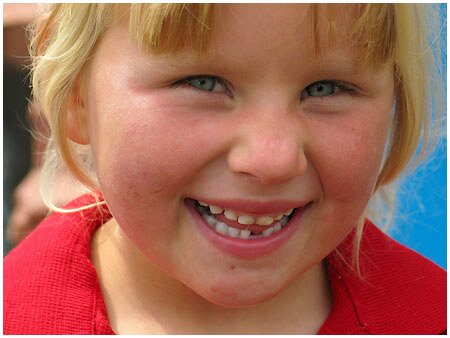Educating Minority Children

Fioletovo, Lori Region, Republic of Armenia © Onnik Krikorian
By Onnik Krikorian / UNICEF Armenia
FIOLETOVO, Lori Region – It’s not often that you encounter a village that makes you feel like an “outsider” in Armenia but Fioletovo is one of the few that do – in every sense of the word. It’s not that the residents of this ethnically homogenous village made up of Russian Molokans don’t like visitors. It’s simply that their presence is not considered essential for this small community to survive and prosper.
The Molokans are Russians that split from the Russian Orthodox Church in the 17th Century. Fioletovo, a village inhabited by less than 1,500 people, is the largest community outside of Yerevan. Their total population in Armenia, however, stands at just 5,000 although 14 years earlier when independence was declared, there were approximately 12,000 Molokans living in the republic. Since then, most have left.Finally, after some delay because of work on a book for UNICEF, the article was completed today, the full text of which is available here.
To call the community “closed” isn’t something of an overstatement. In fact, it’s not too far from the truth. Apart from venturing out of Fioletovo and nearby Lermontovo to sell their famous sauerkraut at market, the village instead resembles a traditional Russian enclave cut off from the rest of Armenia. You might even be forgiven for thinking you had entered a settlement somewhere deep in the heart of Russia.
In fact, many consider the Molokans as something akin to the Amish in the United States.
True, the Molokans use motorized vehicles but otherwise, alcohol is forbidden as is marriage outside the community. And, for the more strict adherents to the faith, so is television. Streets are impeccably clean with every other house sporting a fresh coat of paint. The men wear long beards that haven’t been cut in years while most of the women cover their heads. Their fiercely blonde and blue-eyed children are unable to communicate in any language other than Russian.
And herein lies the problem. As idyllic and refreshing as the scene might be, the situation in terms of education is just the opposite. In fact, according to a recent survey of education in national minority communities by the Hazarashen Armenian Centre of Ethnological Studies, “Molokans continue retaining [their] virtues over education and thus, the inertia of perceiving education as secondary continues.”
Tag: armenia | education

<< Home